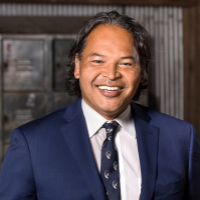 Minneapolis RICO Act Lawyers, Minnesota
Minneapolis RICO Act Lawyers, Minnesota
Sponsored Law Firm
-
 x
x

Click For More Info:
-
The Law Offices of Richard L. Cooper, P.A.
848 Brickell Avenue Suite 800 Miami, FL 33131» view mapDWI/DUI, Drug Trafficking, Felony Nationally Ranked Top 40 Under 40
With Richard L. Cooper you can expect a trusted confidant who will work diligently to fully understand your case and determine a road map to help you regain control of your life.
800-756-2781
Not enough matches for Minneapolis RICO Act lawyer.
Below are all Minneapolis Criminal lawyers.
Sponsored Lawyers
11-20 of 63 matches
Criminal, DUI-DWI, Felony, Misdemeanor
Minnesota Criminal Defense Lawyer, Robert V. Jones has more than 22 years of experience. He has been extremely successful in trying numerous cases in state and federal courts, both at the appellate and trial levels.
(more)Bankruptcy & Debt, Misdemeanor
Lance R Heisler is a practicing lawyer in the state of Minnesota handling bankruptcy matters.
(more)Criminal, DUI-DWI, Divorce & Family Law, Real Estate, Business
Mr. Reppe developed a passion for helping individuals with their legal problems while working as a public defender early in his career. He moved on to work in the private sector as an attorney at a large law firm in Minneapolis before founding Reppe Law Office PLLC. A Northfield native, Jonathan Reppe offers considerable experience in complex transactional and litigation cases. His areas of practice include criminal law, bankruptcy, real estate, business law, DUI/DWI, and family law. Mr. Reppe often speaks at continuing legal education seminars to share his extensive knowledge with other members of the legal profession. He also participates in a number of local volunteer and service efforts.
(more)



 Richard L. Cooper Miami, FL
Richard L. Cooper Miami, FL AboutMiami Attorney at Law
AboutMiami Attorney at Law ServicesCriminal Defense
ServicesCriminal Defense



